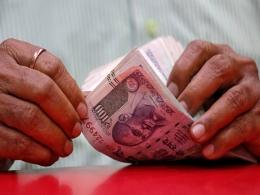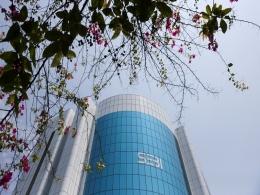 Asian shares edged up on Thursday and were set to end a tumultuous 2020 at record highs, after growing investor hopes for a global economic recovery caused the dollar to fall further against most major currencies.
Asian shares edged up on Thursday and were set to end a tumultuous 2020 at record highs, after growing investor hopes for a global economic recovery caused the dollar to fall further against most major currencies.
MSCI's gauge of Asia-Pacific shares excluding Japan rose 0.17% heading towards its latest closing peak, having explored fresh territory repeatedly late in the year. But year-end trading was typically thin.
The index is set for a fourth-quarter gain of over 19%, which would be its strongest three-month performance since 2009, giving it a yearly rise just shy of 20%, which would be its highest since 2017.
"A lot of the rise in the second part of the quarter is because the political risk evaporated," said Kerry Craig, Global Market Strategist, J.P. Morgan Asset Management, citing the U.S. election, hopes for an easing in U.S.-China trade tensions and the Brexit deal.
Looking to 2021, Craig said investors were trying to balance the potential for rising inflation against a likely economic recovery, and assess whether that rebound might be impeded early in the year by new strains of COVID-19 and struggles with rolling out vaccines.
E-Mini S&P futures rose 0.16%, and FTSE futures fell 0.73%.
Asian gains were led by Chinese blue chips which rose 1.76% on Thursday after the announcement of a trade deal with the EU overnight. The Hong Kong benchmark rose 0.31%.
Official data released Thursday also showed activity in China's service and factory sector expanding in December, albeit both at a slower pace than the previous month.
However, markets barely flickered at the news that China had approved its first COVID-19 vaccine for general public use.
Gary Ng, an economist at Natixis in Hong Kong said the limited impact on the yuan and Chinese equities showed markets had become 'immune' to this sort of news.
"For the market to react more strongly in 2021, large-scale (vaccine) rollouts with positive outcomes are needed," he said.
Elsewhere, Australian shares fell 1.43% after tighter restrictions on movement were announced in an effort to quash fresh COVID-19 cases.
Markets in Japan and South Korea are on holiday on Thursday, having closed at three-decade and record highs the day before.
Currencies quiet
The dollar traded fairly flat against a basket of currencies in Asia, halting an earlier decline which saw it touch its lowest since April 2018.
That trend had helped the risk friendly Australian and NZ dollars, which both gained around 0.2%.
Bitcoin took a rest in Asian trading hours, rising 0.3% to just under $29,000. The world's largest cryptocurrency has almost quadrupled in value this year amid heightened interest from bigger investors.
Oil prices bucked the risk-on trend, however, retreating a shade as swelling year-over-year supply led some traders to view any economic recovery ahead to be gradual rather than swift.
U.S. West Texas Intermediate crude shed 0.14% to trade at $48.34 a barrel, far below about $62 at the start of 2020, and Brent was trading down 0.1%, at $51.58.
Global crude oil markets have lost about a fifth of their value in 2020 as strict coronavirus lockdowns paralysed economic activity and travel, but prices have rebounded strongly from their lows as governments rolled out stimulus.
Gold dropped 0.14% to $1,890.7 an ounce. The precious metal has risen over 24% this year, its best showing since 2010 as investors looked to safe havens and as the dollar wilted.
Treasuries were little changed, with benchmark U.S. 10-year yields at 0.9264% and two-year yields at 0.1250%.







